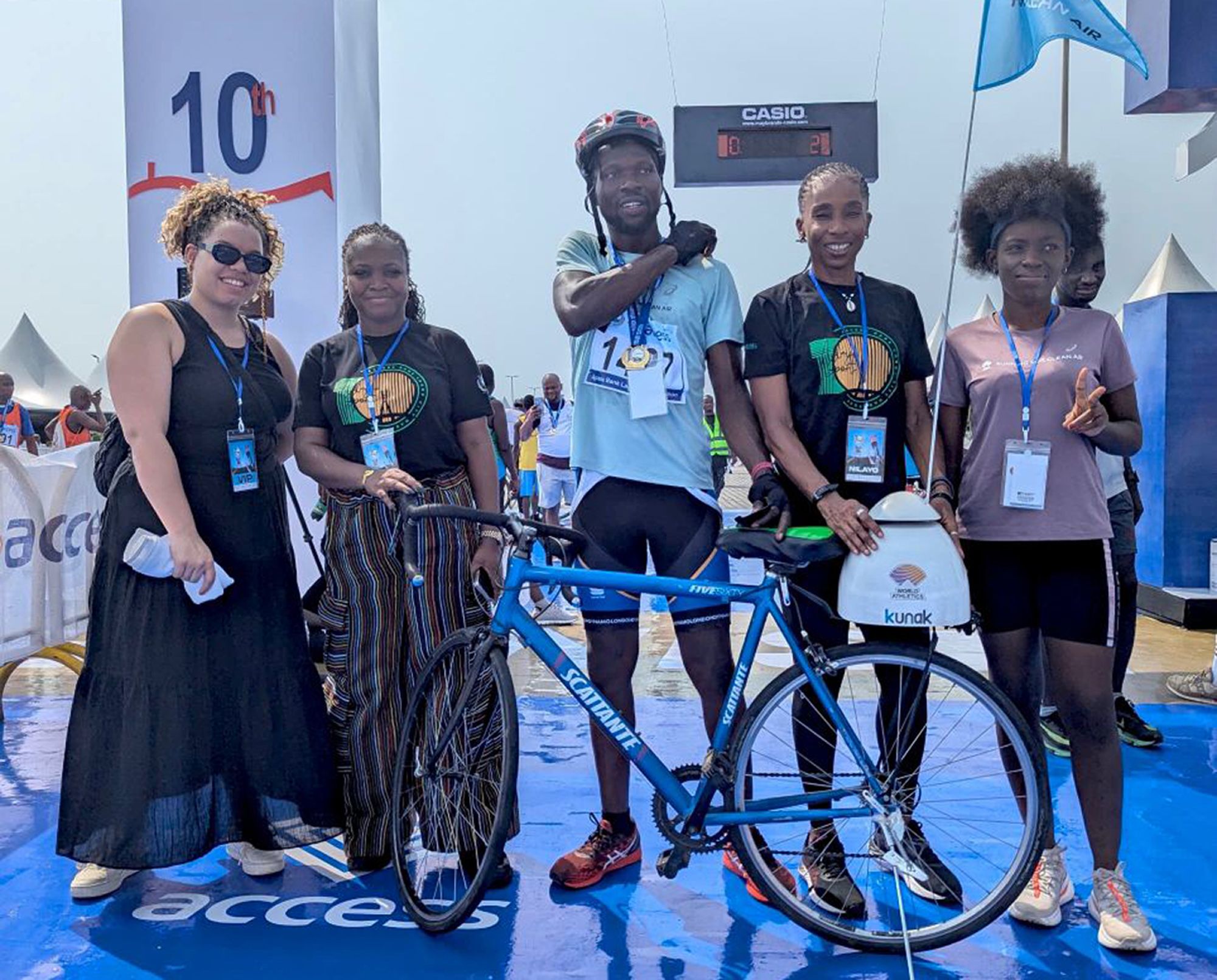• Air quality map of city marathon identifies pollution hotspots, helping improve conditions for runners
As part of the final phase of the Running for Clean Air project, the conditions at this year’s Lagos City Marathon were assessed and analysed, providing insights to race organisers, runners, and city officials pinpoint as to where air quality needs urgent attention – and why.
A bike equipped with an air quality sensor followed the leading runners in the women’s race at the Lagos Marathon in February. The 42km route cut through bustling markets, a busy bus terminal, across a 12km bridge, and into newer parts of the city, crossing the finish line within three hours.
The data collected produced striking heat maps showing pollution levels across the course. Green marked clean air, while red highlighted heavily polluted zones.
The World Athletics Health & Science Department compiled all the findings from the Lagos City Marathon dynamic monitoring into a report.
An excerpt from the heat map. The red area near the top shows a highly polluted area close to a bus terminal, where many commercial vehicles cause higher traffic pollution.
Drawing on the project’s findings
Running for Clean Air is a World Athletics project, funded by the Clean Air Fund. It uses marathons as platforms to raise awareness and gather data on urban air pollution. By blending live monitoring with public outreach, the project encourages healthier cities and safer spaces for physical activity.
Launched in 2023, the project culminated with the Lagos Marathon but continues to make an impact. World Athletics has gifted the air-monitoring device to the Lagos State Environmental Protection Agency, ensuring the data keeps flowing.

A bike equipped with an air quality sensor at the Lagos Marathon
“We recognise that the Running for Clean Air mission aligns with our ambition and we want to appreciate this by taking on the commitment and use the data from the sensor for further environmental and public-health informed policy decision and intervention,” said Babatunde Ajayi, General Manager of the Lagos State Environmental Protection Agency.
Community in action
During the six months, when Running for Clean Air was active in Nigeria’s largest city, it was obvious that such a commitment from the government would be appreciated and supported by the local running communities. Led by a group of 10 project ambassadors, several fitness drives, runs, workshops, and speeches were organised. Their energy and grassroots support demonstrated how much the community values the air they breathe and how empowered they can be with the right tools and information.
Lagos followed in the footsteps of Warsaw, the first city to pilot the project. It is hoped that other cities and race organisers will be inspired to join the clean air movement.
